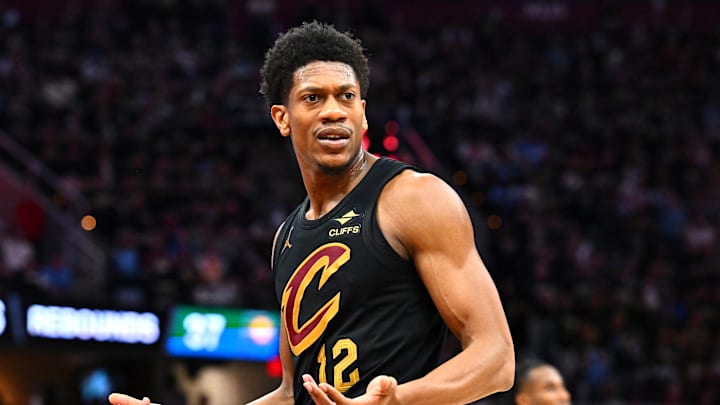As things stand, the Cleveland Cavaliers should not have traded for De'Andre Hunter.
This is not an attempt at revisionist history. At the time, the Cleveland Cavaliers looked to have won the trade that added De'Andre Hunter at the Trade Deadline in exchange for Caris LeVert, Georges Niang and some middling draft capital. From a value standpoint, that deal was still a strong move for the franchise.
It also made sense at the time to load up for a team that appeared headed for the Eastern Conference Finals and had a legitimate chance at winning it all. Hunter is a smooth-shooting forward with size who had a great start to the season with the Atlanta Hawks. He caught fire upon joining the Cavaliers, shooting 42.6 percent from 3-point range in 27 post-deadline games.
The Hunter trade looks like a mistake
The reason for transactional regret is based not on the team's reasoning at the time, but on the present reality. Adding Hunter did not further equip the Cavaliers to make a deep run in the playoffs; instead, he was a part of the problem as the franchise flamed out in fantastically painful fashion in the second round to the Indiana Pacers.
Hunter averaged just 11 points per game in the postseason overall and just nine in their second round series against the Pacers. He shot 30.8 percent from deep and 36.7 percent from the field overall, and had just one steal and one block total across four games. The Cavs were bounced in five as injuries, cold-shooting and a broken spirit sent them spiraling into the offseason.
Now the Cavaliers face an uncertain future. They are skyrocketing above the second tax apron next season as Evan Mobley makes a rookie supermax, accounting for a full 30 percent of the salary cap -- the same as Donovan Mitchell. Hunter will make $23.3 million next season, adding to a gargantuan salary shoot that is propelling them into untenable financial waters.
The Cavs are hard-pressed to make any changes to their roster because they cannot aggregate players together in a trade, nor execute a sign-and-trade, nor take back more money than they send out. In free agency they can only sign players to minimum contracts. Re-signing their own free agents will turn a $10 million charge into six or eight times that.
De'Andre Hunter is a good player; that is without question. He also fit well with the Cavaliers down the stretch and showed off a smooth jumpshot. Yet he is also not an impact defender, offers nothing in the way of playmaking and has an extensive injury history. Those downsides felt worth the risk when he was the finishing piece on a contender; as an expensive contract weighing down their future books at a time when they want options, it's akin to a death sentence.
Cleveland almost has to run everything back. Locking themselves into the Hunter contract all but assures that. Their ability to do anything else is hamstrung by their salary sheet and the league's restrictive apron rules.
Making the Hunter trade was understandable at the time, but now that they have tripped and fallen it looks like a colossal mistake.
